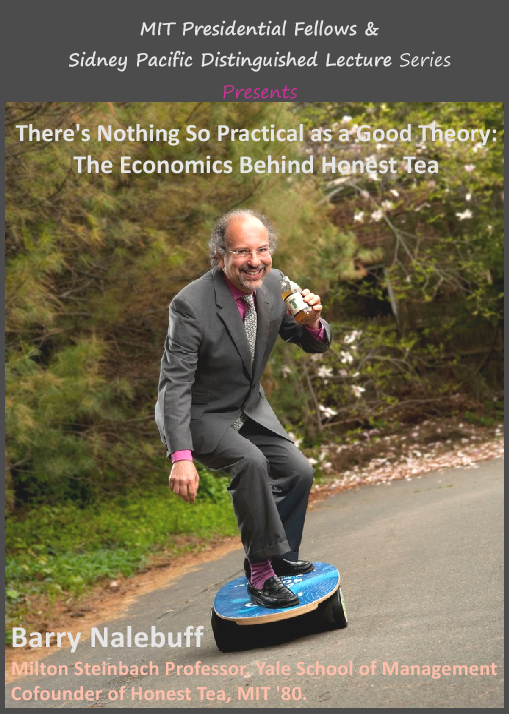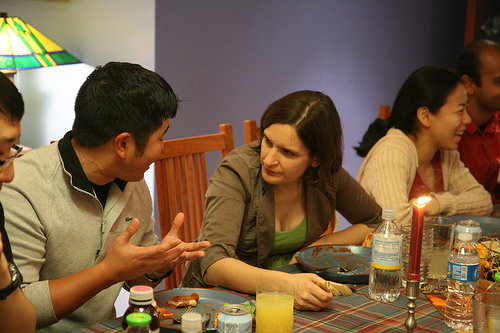Scholarly interaction might sound like the sort of thing MIT graduate students do all the time: in lab, library and soul-crushing/rapturously life-giving meetings with advisors, TAs, co-workers, etc. But, there is another dimension to scholarly interaction, and it is what we often think of when we use expressions like “interdisciplinary” and “exciting discovery”: the pursuit of knowledge for its own sake, and free of most, if not all, of the strictures and obligations of tightly focused, highly specialized research. The Committee of Scholarly Interaction (CoSI) at Sidney-Pacific is precisely dedicated to this ideal.

The Committee of Scholarly Interaction (CoSI) brings in distinguished lecturers from the Boston-Cambridge area
It’s probably worth getting to all that by addressing the two most highly trumped objections from graduate student to this sort of thing. The first is about time. How does a graduate student, busy with running experiments, reading papers and preparing for the aforementioned soul-crushing/rapturously life-giving meetings, make time for hearing and talking about the latest on the Middle East or the economy? Your correspondents, being graduate students themselves, totally understand. We hardly have time for much else, and often find ourselves very late for all sorts of deadlines, the one for submitting this piece included. That said, there is an answer to the time objection, and it is that participating in our events does not take much of your time, and we mean this honestly. One of the programs we help run is the MIT/Sidney-Pacific Distinguished Lecture Series. For each lecture, a highly regarded academic in the Boston-Cambridge area (or beyond) speaks on topic of broad interest, and takes questions from the audience. Most events last about an hour, which makes a maximum of 3 hours a semester. Whichever way one looks at it, 3 hours a semester is not very much time. It certainly pales in comparison to the 8 hours we apparently spend on Facebook every month.
Another typical protest has to do with the educational possibilities of hour-long symposia on topics one is not intimately acquainted with, and that a graduate student who has dedicated his life to physics is limited in how deeply he can understand what happens to the world economy, or what genomics really means, etc. This is partly true, and it is definitely the case that completely liberating a subject from all its technical foundations is about as helpful as liberating a plant from the soil that sustains it.

"Scholarly" discussion during dinner
Yet it is one thing to oversimplify a subject, and quite another to critically engage it at a level that respects all the technicalities, but still informs. Past lectures, we believe, bear this out. Last semester, Prof. Barry Nalebuff shared insights from his founding a soft drink company dedicated to making iced tea with the right amount of sugar. Prof. Esther Duflo spoke about using randomized evaluations to assess the effectiveness of poverty alleviation measures. Prof. Noam Chomsky examined the Arab Spring, and its implications for the political future of the Middle East. And each of these was eminently discussable. What is the right amount of sugar for a glass of iced tea, and where is the economic incentive for properly sugared soft drinks? What are the ethical boundaries associated with “performing experiments” on the poor? How exactly is the U.S. implicated in events going on in the Middle East? These were the questions people asked and the answers were often very interesting and deeply informative. During dinner/brunch discussions, people are free to disagree and challenge one another on almost anything, but the results have almost always sharpened perspectives, broadened horizons and reminded us of how awesome it is to be able to learn new things. This is what CoSI aspires to. In the end, and if it strikes a chord, we hope you can help us out with the planning and running of events, or at least reflect on the fact that 3 hours a semester is not very much time.
By David Kwabi and William Li, SP CoSI Chairs
